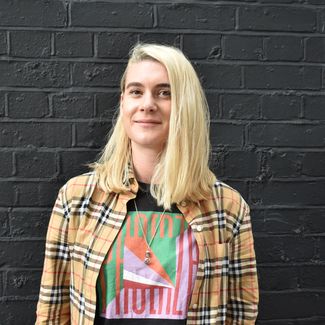
Future of Planning
The future of planning is curation
The future of planning needs to be different. More diffuse. More generous, writes the BMB CSO
20 March 2023
“I think of my work as that of a catalyst and sparring partner.” Hans Ulrich Obrist, curator.
Curation is a brilliant and skillful thing. Whether in the world of art, fashion, editorial or education, It’s about bringing the right people and ideas together to create a bigger whole. Setting the vision and ensuring the experience of it is joined-up, consistent and impactful. Not being the creator, but directing, challenging and inspiring them…Does any of this sound familiar?
Planners are often described as builders, marshalls, stewards and other tough, manual labour or military-adjacent words. But I believe that the future of planning needs to be different. More diffuse. More generous. More focused on being a curator.
(Spoiler alert: this is one of those analogy type answers. I find them incredibly useful. Jim Carroll’s analogy of brand planners as “not doctors, but psychoanalysts”, aka people who listen, unearth and actively guide rather than prescribe answers, has lived rent-free in my head since 2015. When considering the future of planning, this is the kind of answer I seem to gravitate to...)
So, what does it mean to view the future of planning as curation?
First of all, it means seeing planning’s role as inviting breadth. Brands are broad entities, spanning more touchpoints and parts of culture than ever before, so brand planning inputs need to be broad too. Rather than holding onto brands tightly and solving problems singularly, planners will need to open them up to different specialisms and perspectives. Or as David Shrigley puts it “Good curation is working with someone who can do something you can't.” And yes, this is in part, about inviting in the right people (UX specialists, researchers, platform experts…) but increasingly, it will also mean inviting in the right tools and artificial intelligence. There’s already a healthy dialogue about how planners can use Chat GPT to aid their processes, and new AI possibilities seem to be emerging every week (SlidesGPT anyone?). This kind of conversation is going to continue at pace, and the best planners won’t block because it’s scary or threatening, they will invite as long as it benefits.
Secondly, the other side of the coin; it will mean planners honing an even stronger ability to limit, simplify and filter out. In doing so, it might mean planners behaving a little more like creative directors…hear me out. Curation is the art of selection, and that’s exactly what creative directors do every day. From lots of ideas, they select the best and refine them in line with their creative vision. Which is what planner-curators also need to do. It’s not new, but I think this aspect of what we do will become even more important. In the face of ever-increasing information excess and the broadening of brands and media, being the curator who filters, simplifies, directs and does so with consumers as their north star, will be absolutely vital.
Finally, planner-curators will need to cultivate the right mindset for achieving all of this. The good news is that we’re already halfway there, because curation thrives on curiosity, which planners have in natural abundance. But curation also requires confidence, the kind that can navigate an ever-expanding landscape without fear or trepidation, as well as the generosity to hand over the reins when the right moments come. It will mean planners getting comfortable with not always being the ones to originate the answer, but finding power in being the ones to spot them instead. So, to recap the mindset is: curious, confident and generous. And that sounds pretty righteous to me.
It’s interesting, especially in contrast to those tough, military planning analogies I started with, to consider the etymology of the word curate; it’s from the Latin word ‘curare’ meaning ‘to take care’. The best planners drive brands forward with empathy and consumer-centricity, and I believe that doing this well will increasingly require them to open up to new and ever-widening inputs. Was it the famous philosopher Sting who said, “if you love somebody set them free”? Sure, it applies to people, but perhaps it applies just as well to planners and brands too.
Mel Arrow is the Chief Strategy Officer at BMB Agency








